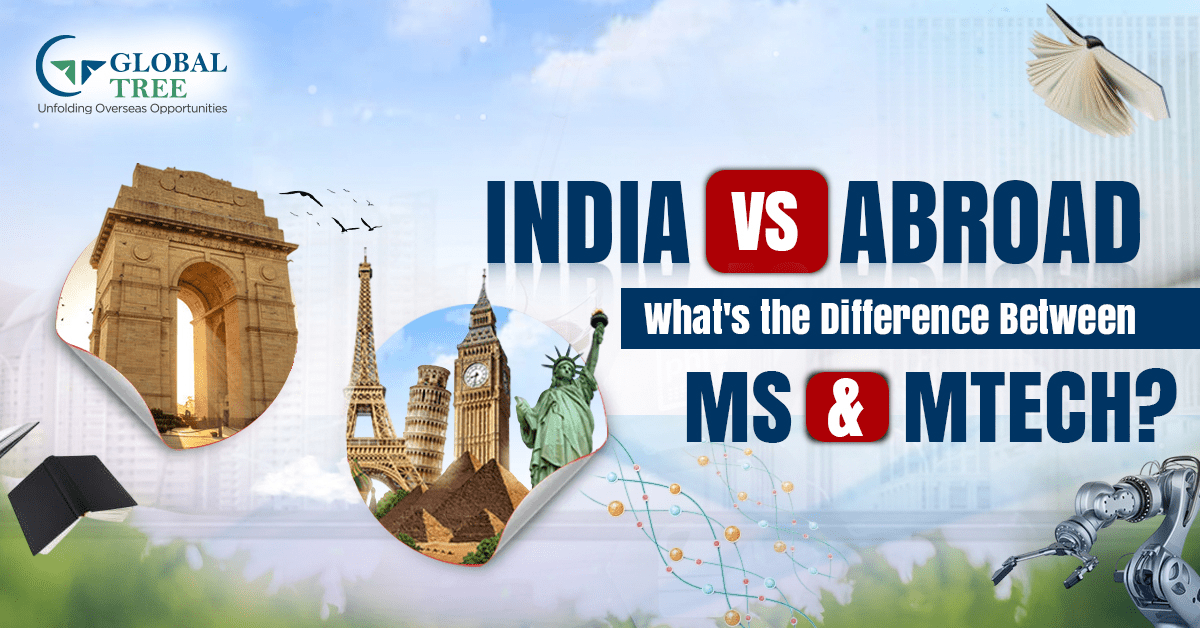Master of Physiotherapy in Australia for International Students : A Path to Excellence in Healthcare

- Introduction
- About the Masters in Artificial Intelligence Programme
- Master of Physiotherapy Course Syllabus
- Books that are Important
- Top Universities in Australia for Master of Physiotherapy
- Masters in Physiotherapy in Australia Fees:
- Scholarships for a Masters in Physiotherapy in Australia for Indian Students
- Master of Physiotherapy: Whats in Store for the Future?
- Jobs for a Master of Physiotherapy:
- Conclusion
- Master of Physiotherapy: Frequently Asked Questions (FAQs)
Introduction
In Australia, the Master of Physiotherapy programme gives people who want to work in health care a thorough and rigorous education that gives them the skills, information, and clinical expertise they need to become good physiotherapists. This comprehensive guide gives international students who want to study physiotherapy in Australia all the information they need to know about the program's purpose, admission requirements, top universities that offer the programme, programme costs, scholarship opportunities, possible career paths, and helpful FAQs.
About the Masters in Artificial Intelligence Programme
What's Masters in Artificial Intelligence all about?
A Master of Physiotherapy programme teaches students how to study and use physical therapy principles to improve health, avoid and treat injuries, rehabilitate patients, and make people feel better overall. It trains people to work as physiotherapists in hospitals, clinics, sports centres, and rehabilitation facilities, among other places. If you're looking to know more about studying in Australia: Check out here to make your journey just a bit more awesome!
Who Needs to Study Masters in Artificial Intelligence?
The programme is made for people who are interested in human anatomy, physiology, and movement science and who want to help people with physical limitations, injuries, or health problems live better lives.
Why Would You Want to Study Physiotherapy in Australia?
Australia is known for having high standards for schooling and health care. When you study physiotherapy in Australia, you have access to world-class instructors, state-of-the-art facilities, hands-on clinical experiences, and the chance to work with top healthcare workers.
Here are some fast facts about Master of Physiotherapy:
- Duration: The length is usually between 2 and 2.5 years, based on the university and how the programme is set up.
- Clinical Placements: Most programmes include supervised clinical placements so that students can get hands-on training in a variety of healthcare settings.
- Accreditation: Graduates who want to work as physiotherapists in Australia can apply for professional registration.
Requirements for getting into the Master of Physiotherapy programme:
- College Degree Required: Most applicants need a bachelor's degree or the equivalent in a related area, such as kinesiology, exercise science, or human biology.
- Course Requirements: Some programmes may need you to take particular classes in anatomy, physiology, and other related topics before you can start.
- Ability with the English language: International students may need to take tests like the IELTS or TOEFL to prove they can speak English, unless they come from an English-speaking country or have already studied in English.
- Statement of Purpose: Applicants are often asked to write a well-written statement of purpose that describes their motivation, job goals, and interest in physiotherapy.
- Recommendation letters: Applicants might be asked to provide letters of recommendation from academic or professional sources.
Master of Physiotherapy Course Syllabus
A Master of Physiotherapy program's course list can be different depending on the university and how the programme is set up. But the following are usually the most important parts of the curriculum:
- For Anatomy and Physiology: A complete look at the human body and how it works, including the muscular, nervous, circulatory, and respiratory systems.
- Biomechanics is the study of the concepts of biomechanics, movement analysis, and how the human body moves.
- Physical Assessment is a term for the methods used to do physical evaluations, diagnose diseases, and make treatment plans.
- Exercise Prescription means coming up with and doing therapeutic workouts to improve mobility, strength, and function.
- Clinical Practise: Supervised clinical placements in different healthcare settings where students can use their skills and get hands-on practise.
- Evidence-Based Practise: Learning to use evidence-based approaches in physiotherapy and incorporating research results into clinical decision-making.
Books that are Important
Depending on the programme and university, different textbooks and reference books may be suggested for Master of Physiotherapy students. Some of these books are:
- Douglas J. Gould and Kimberly Taff's "Clinical Anatomy and Physiology for the Angry Health Professional"
- Written by Nicola J. Petty, "Neuromusculoskeletal Examination and Assessment: A Handbook for Therapists"
- Carolyn Kisner and Lynn Allen Colby's "Therapeutic Exercise: Foundations and Techniques"
- "Muscles: Testing and Function, with Posture and Pain" was written by Florence Peterson Kendall, Elizabeth Kendall McCreary, Patricia Geise Provance, and Mary McIntyre Rodgers.
- "Principles of Anatomy and Physiology" was written by Gerard J. Tortora and Bryan H. Derrickson.
Know Australia’s Admission Process before you book tickets!
Top Universities in Australia for Master of Physiotherapy
Australia is home to prestigious universities that offer excellent Master of Physiotherapy programmes. These programmes give students a strong grounding in physiotherapy practise, evidence-based approaches, and clinical experiences. Here are some of Australia's best universities for Master of Physiotherapy programmes:
1. University of Melbourne:
- The University of Melbourne's Master of Physiotherapy programme focuses on evidence-based practise, professional skills, and working with people from other fields.
- Students have access to simulation tools that are up-to-date, clinical placements that give them hands-on experience, and a supportive learning environment.
2. University of Sydney:
The University of Sydney's Master of Physiotherapy programme has a full syllabus that focuses on musculoskeletal, neurological, and cardiorespiratory physiotherapy. The university places a lot of importance on study and clinical experiences, which helps prepare students for successful careers as physiotherapists.
3. Curtin University:
The Master of Physiotherapy programme at Curtin University gives students real skills, clinical placements, and experience with a variety of patient groups. The dedication of the university to new ways of teaching and to working with healthcare facilities makes learning more interesting.
4. University of Queensland:
The University of Queensland's Master of Physiotherapy Studies programme focuses on advanced clinical skills, practise based on evidence, and professional growth.
Students can work with professors who have a lot of experience, take part in study, and get hands-on training in real healthcare settings.
Overall Ranking Universities in Australia to make the Best decisions
5. La Trobe University:
The Master of Physiotherapy programme at La Trobe University works on musculoskeletal, neurological, cardiorespiratory, and research skills. Because the university has strong ties to health care facilities, students can get useful clinical experience and learn about different types of cases.
Masters in Physiotherapy in Australia Fees:
Master of Physiotherapy Fees in Australia depends on the university, the length of the programme, and whether or not the student lives in Australia. International students can expect to pay between about AUD 25,000 and AUD 40,000 per year in school fees. When making a budget, international students should also think about costs like living bills, textbooks, and health insurance.
Scholarships for a Masters in Physiotherapy in Australia for Indian Students
Many universities in Australia that offer Master of Physiotherapy programmes to foreign students offer scholarships and other financial aid. The goal of these scholarships is to reward academic achievement, support diversity, and make it easier for students to go to college. International students can look into the following possibilities for scholarships:
- Australia gives out scholarships: These scholarships, which are paid for by the government of Australia, help students from certain countries study in Australia, including in the area of physiotherapy.
- Endeavour Postgraduate Scholarships: International students from involved countries can get these scholarships to help pay for their postgraduate studies in Australia.
- Scholarships for specific universities: Many universities have scholarships for foreign students who want to get a Master's degree in physiotherapy. These scholarships may pay for things like tuition, living bills, or travel costs.
- Scholarships from Professional Associations: Some professional physiotherapy groups in Australia may help students pay for physiotherapy school by giving them scholarships or funds.
Here you can know the Best Scholarships in Detail for Australia
International students should look at the eligibility requirements, application deadlines, and papers that are needed for each scholarship. It's important to start the grant process early and look into different ways to get money.
Master of Physiotherapy: Whats in Store for the Future?
With a Master of Physiotherapy, you can work in many different areas of physical treatment and health care. Graduates can become registered physiotherapists and provide useful services to people of all ages and in many different settings. Here are some possible ways to get a job after finishing the programme:
- Clinical physiotherapists work in hospitals, clinics, rehabilitation centres, or private practises to diagnose, treat, and rehabilitate people with musculoskeletal, neurological, and other health problems.
- A sports physiotherapist specialises in treating athletes, preventing sports-related injuries, and creating rehabilitation programmes to improve sports performance.
- A paediatric physiotherapist, you should focus on figuring out how children with developmental problems, physical challenges, or neurological conditions are doing and how to help them.
- Geriatric physiotherapist, your job is to care for older people by improving their mobility, avoiding falls, and making them more independent in general.
- Researcher or Academic: Look for opportunities to do research, add to evidence-based practise, and maybe become a physiotherapy educator in academia.
Jobs for a Master of Physiotherapy:
After getting a Master of Physiotherapy in Australia, grads can look for a wide range of jobs in the field of physiotherapy:
- Physiotherapist: Work with medical teams, figure out what each patient needs, and make personalised plans for care.
- Specialist in Rehabilitation: Help people who are recovering from injuries, surgeries, or medical problems get back on their feet and do their jobs.
- Pain Management Therapist: Use therapeutic treatments, exercise programmes, and pain management techniques to help with long-term pain.
- As a health educator, you should teach people how to avoid getting hurt, how to exercise, and how to change their lifestyles to improve their general health.
- Research Associate: Help with physiotherapy-related research projects, clinical trials, or university studies.
Story Continues with the Best Internships & Job opportunities in Australia
Conclusion
Getting a Master of Physiotherapy in Australia can be a life-changing experience that prepares international students for a rewarding job in health care. Having access to the best Students who take this path have access to universities, clinical placements, scholarship opportunities, and the chance to improve people's physical health. They also gain valuable skills and knowledge that improve the health and quality of life of people all over the country and the world. When foreign students decide to study physiotherapy in Australia, they are opening the door to a world of professional growth, compassionate care, and the chance to become important members of the healthcare community.
Master of Physiotherapy: Frequently Asked Questions (FAQs)
Can people from other countries study Master of Physiotherapy in Australia?
A: Yes, Master of Physiotherapy programmes in Australia are open to people from other countries. Many universities accept students from other countries and offer services that are designed to help them do well in school.
What kinds of jobs can you get in Australia after getting a Master of Physiotherapy?
A: Graduates of Australia's Master of Physiotherapy programme can work as registered physiotherapists in hospitals, clinics, rehabilitation centres, sports facilities, and other healthcare places.
Is there a way for international students in the Master of Physiotherapy programme to get hands-on experience?
In Australia, many Master of Physiotherapy programmes include supervised clinical placements so that students can get hands-on training, use their skills, and work with patients under the supervision of a professional.
How can international students find a place to live while learning Master of Physiotherapy in Australia?
Many Australian universities help international students find a place to live by giving them information and resources. Students can look into housing choices on campus, off-campus rentals, and the university's services for student housing.
Is there a chance for foreign students with a Master of Physiotherapy to find work in Australia?
International students in Australia on a student visa (subclass 500) may be eligible for the Temporary Graduate visa (subclass 485), which lets graduates work in Australia briefly after they finish their studies. This gives graduates a chance to get some work experience in the area of physiotherapy.









